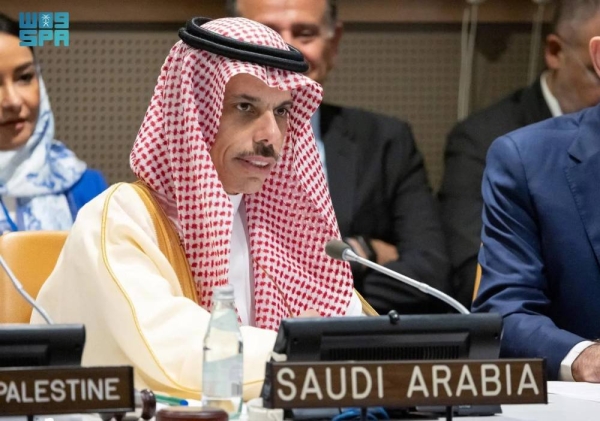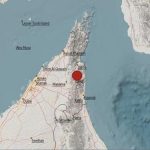A Ministerial Committee assigned by the Joint Arab-Islamic Extraordinary Summit on developments in the Gaza Strip recently met in New York to discuss pressing issues surrounding Israeli aggression, escalating tensions in the occupied West Bank, humanitarian aid delivery, and efforts to recognize the Palestinian state. Chaired by Saudi Minister of Foreign Affairs Prince Faisal bin Farhan, the meeting aimed to intensify Arab and Islamic initiatives during the upcoming United Nations General Assembly session. The focus was on supporting the establishment of an independent Palestinian state along the borders of June 4, 1967, with Jerusalem as its capital.
In attendance were various high-ranking officials including Prime Minister and Minister of Foreign Affairs of Palestine Dr. Mohammed Mustafa, Jordan’s Deputy Prime Minister and Minister of Foreign Affairs and Expatriates Ayman Safadi, Egypt’s Minister of Foreign Affairs Dr. Badr Abdelatty, and Bahrain’s Minister of Foreign Affairs Dr. Abdullatif Al-Zayani. The Turkish Minister of Foreign Affairs Hakan Fidan, Minister of Foreign Affairs of Indonesia Retno Marsudi, Qatar’s Minister of State Dr. Mohammed Al-Khulaifi, Arab League Secretary General Ahmed Aboul Gheit, and Secretary General of the Organization of Islamic Cooperation Hissein Brahim Taha were also present at the meeting, showcasing a united front in addressing the ongoing crisis in Gaza.
The ministers discussed ways to halt Israeli aggression in the Gaza Strip and mitigate the humanitarian catastrophe unfolding in the region. There was a significant emphasis on ensuring the delivery of vital humanitarian aid to all affected areas. The meeting also flagged the dangerous escalation of tensions in the occupied West Bank, underscoring the urgency of finding peaceful resolutions to the conflict. By coordinating efforts and pooling resources, the committee seeks to make a meaningful impact on the ground and alleviate the suffering of Palestinians caught in the crossfire.
As the 79th session of the United Nations General Assembly approaches, the Ministerial Committee aimed to strategize and coordinate Arab and Islamic support for initiatives that advocate for the recognition of the Palestinian state. The ultimate goal is to secure the fulfillment of the Palestinian people’s right to self-determination and the establishment of their own sovereign state. By rallying international support and leveraging diplomatic channels, the committee hopes to make significant strides towards achieving these long-standing objectives and addressing the root causes of the conflict in the region.
In preparation for the high-level week of the General Assembly session, the ministerial meeting laid the groundwork for a unified approach to advocate for the Palestinian cause. With key representatives from various Arab and Islamic nations in attendance, the committee demonstrated a cohesive front in addressing the urgent humanitarian and political issues facing Palestinians. By harnessing the collective influence and resources of member states, the committee seeks to amplify the voices of the Palestinian people and push for tangible progress towards a lasting and just resolution to the conflict.
Overall, the Ministerial Committee’s coordination meeting in New York underscored the pressing need for immediate action to address the crisis in the Gaza Strip, the escalating tensions in the West Bank, and the broader Palestinian cause. By coming together to strategize and coordinate their efforts, the committee aims to leverage the upcoming United Nations General Assembly session to galvanize international support for recognizing the Palestinian state and advancing the rights of the Palestinian people. Through collective action and diplomatic engagement, the committee is poised to make significant strides towards alleviating the suffering of Palestinians and paving the way for a peaceful and sustainable resolution to the longstanding conflict in the region.


























